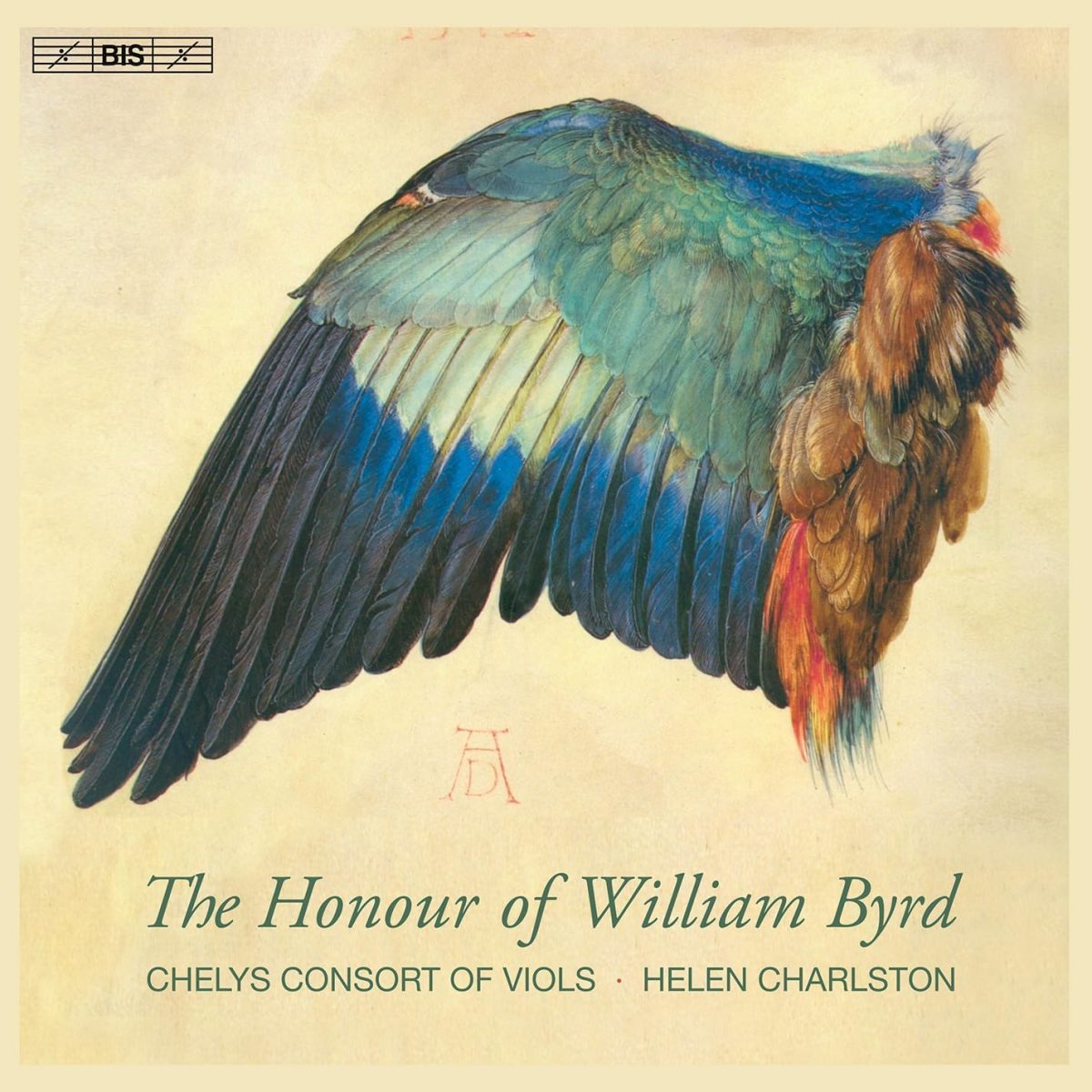Helen Charlston mezzo-soprano, Chelys Consort of Viols
BIS BIS-2663
74:51
This fine tribute to William Byrd is one of many commercial recordings to mark the quatercentenary of his passing on 4 July 1623. Helen Charlston sings on twelve of the tracks, and of the other seven, six are consort pieces and the other is an arrangement, originally for recorders, by the esteemed F.H. Mountney and Walter Bergmann, published by Schott in 1966, of Byrd’s variations on Sellenger’s Round for keyboard.
Two of the vocal items are “choral” works arranged here for voice and viols: the six-part version of This sweet and merry month of May, one of Byrd’s few actual madrigals; and the church anthem O Lord make thy servant Elizabeth also in six parts, which became increasingly popular during the latter years of the second Queen Elizabeth. These work as well as such adaptations ever do. The other songs, all of which have received at least one previous commercial recording, are an appealing combination of familiar and unfamiliar. Two of them, Why do I use my paper, ink and pen and Blessed is he that fears the Lord, are familiar on disc and were printed by Byrd as partsongs but have only ever received recordings, albeit perfectly authentically, as solo songs. Having heard the former sung “chorally” by the Marian Consort earlier this year during a recital in Norwich, it would be good to have both this and the other song on disc in their original printed versions. Come to me grief for ever has been recorded in both versions, and it is good to welcome these familiar pieces alongside the less familiar Thou poet’s friend, With lilies white, All as a sea and Wretched Albinus. The final song, and concluding track, on this disc is the most familiar item of all, Byrd’s lament for one of his teachers (not forgetting John Sheppard!) and closest mentor Thomas Tallis, Ye sacred Muses. One of the sublime qualities of this iconic work (and for once the adjective can be applied appropriately) is that it draws forth outstanding performances from whoever sings it on disc. This is no less the case here, which is arguably Helen’s finest interpretation of a song from this repertory, her searing yet restrained sincerity superbly supported by Chelys’s immaculate accompaniment in which every line is clearly heard, with each part perfectly balanced with one another and cumulatively with the voice.
While Dowland has acquired plaudits over the years from the likes of Britten for his word-settings, Byrd has a more subtle way with his texts, often dropping a “killer” musical phrase to clinch the psychological drift of a particular text. Several of the songs included on this recording have just such moments: the almost immobile phrase over a melodically and harmonically busy accompaniment at “works thine end” concluding Wretched Albinus (aka the doomed Earl of Essex); the suddenly incandescent “with lamps of crystal shining” in With lilies white; the uneasy “with troubles are beset” in Rejoice unto the Lord; the spiritually erotic “this love light not thy mind” in Ah silly soul; and the more overt “and sing with me” in Thou poet’s friend. All these are sensitively conveyed by Helen and Chelys.
The consort pieces are all familiar but nonetheless welcome. Chelys’s reading of the In nomine a4 no 1 is both beautiful and profound, measured and thoughtful. The second of Byrd’s fantasias in six parts is a bit rushed, and the lower textures are occasionally muddy: for instance, the rhetorically crucial semiquavers in the second tenor at bar 41 are inaudible. Unlike some other consorts, Chelys commendably use the original instrumental notation in the first of Byrd’s fantasias in six parts, not defaulting to the slightly different rhythms in what became his motet Laudate pueri as being allegedly his revised thoughts on those passages (rather than simply his response to the text he chose to set to that pre-existing music). Chelys’s interpretations of the fantasias a4 no 1 and a5 and the Browning are excellent.
There are still a few of Byrd’s songs awaiting commercial recordings, although the only one without complications in its provenance is Ah golden hairs; and As Caesar wept has appeared only on LP. All but two of Byrd’s consort verses on Te lucis ante terminum have yet to appear on disc. Meanwhile, this is a thoroughly likeable and rewarding disc, a well-chosen combination of consort songs and consort music, and a fine contribution to Byrd’s quatercentenary.
RICHARD TURBET
